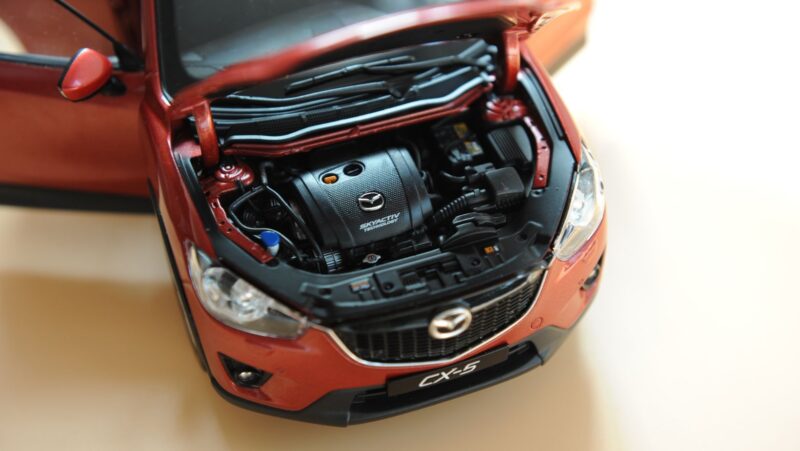
Car accidents are sudden and unsettling events that can leave even the most composed drivers feeling disoriented. Whether it’s a minor fender bender or a more serious collision, knowing how to respond can make a significant difference in ensuring safety and protecting one’s rights. It’s essential to approach the situation with a clear mind and a plan of action.
Understanding the steps to take immediately after an accident is crucial for minimizing stress and potential legal complications. From assessing injuries and contacting emergency services to gathering necessary information, each step plays a vital role in the aftermath. By staying informed and prepared, drivers can navigate these challenging moments with confidence.
This comprehensive guide offers valuable insights into the essential actions to take following an accident. With the right knowledge, drivers can protect themselves and others, paving the way for a smoother recovery process.
Immediate Steps to Take at the Scene of the Accident
When involved in a car accident, taking immediate action is crucial. Following these steps helps ensure safety and can support any potential legal advice for car accidents.
Check for Injuries
Before anything else, assess everyone involved for injuries. This includes yourself and any passengers. Adrenaline and shock might mask pain initially, so examining physical condition is paramount. Even minor injuries necessitate immediate medical attention to document and address potential health issues.
Move to a Safe Area
If possible, relocate the vehicle out of the traffic lane. This prevents further accidents and ensures the safety of all parties involved. Activate hazard lights to alert other drivers of your presence, reducing the risk of additional collisions.
Contact Law Enforcement
Report the accident to law enforcement promptly. Even in cases of minor accidents, a police report can be a vital piece of documentation. Officers can manage traffic, provide an official record, and coordinate emergency medical services if necessary.
Gathering Information at the Scene
After ensuring safety, gathering thorough information at the scene of a car accident becomes crucial.

This step aids in obtaining accurate facts which are beneficial for insurance claims and any subsequent legal advice for car accidents.
Exchange Information with the Other Driver
Drivers should exchange full names, contact numbers, and addresses. They must also share vehicle details like make, model, and license plate number. Noting the insurance company and policy number of the other driver provides essential details for claims.
Take Photos and Document the Scene
Clear photos of the accident scene offer objective evidence. Capturing vehicle damage, license plates, roads, and any visible injuries ensures that the visual record supports the incident’s narrative. It’s important to document the time, date, and location accurately.
Collect Witness Information
Witness accounts can verify accident details. Collecting names and contact information from any witnesses strengthens the reliability of the event’s depiction. Engaging witnesses immediately helps in recording their observations while they are fresh.
What to Do After a Car Accident That Is Not Your Fault
When involved in a car accident that isn’t their fault, drivers should take specific steps to protect their rights and interests. Taking immediate and accurate actions ensures the driver has a solid foundation for any future claims or legal proceedings.
File a Claim with the At-Fault Driver’s Insurance
Drivers can file a claim with the at-fault party’s insurance company. This process involves providing detailed documentation of the accident, including police reports, photos, and witness statements. The driver’s insurance company often assists in pursuing the claim to ensure proper handling and just resolution. Clear, accurate information supports the case and aids in obtaining appropriate compensation.
Get a Medical Evaluation
Drivers should seek a medical evaluation promptly, even if no immediate injuries appear evident. Some injuries, such as whiplash or concussions, may not manifest right away. Medical documentation is crucial, as it provides necessary evidence should legal advice for car accidents be needed later. This evaluation not only safeguards health but also strengthens any personal injury claims that may arise from the accident.
When to Seek Legal Advice for Car Accidents
Understanding when to seek legal advice for car accidents helps protect your rights and maximize compensation. Various scenarios require legal expertise to navigate the complexities of insurance claims and personal injury law.
If You’re Facing Denied or Low Insurance Claims
Seeking legal advice becomes essential when insurance claims are denied or offer low compensation. Insurance providers may dispute the extent of damages or the necessity of medical treatments, leaving individuals undercompensated. An experienced attorney evaluates the claim, negotiates with the insurer, and ensures fair compensation aligns with documented evidence and coverage limits.
If You’ve Suffered Serious Injuries
Legal guidance is crucial when an accident results in serious injuries like fractures, spinal injuries, or traumatic brain injuries. Such injuries incur significant medical expenses, rehabilitation costs, and possibly permanent disabilities.

A lawyer assesses the full extent of injuries, calculates ongoing medical needs and lost wages, and pursues a settlement that accurately reflects the long-term impact on quality of life.
If Liability Is Disputed
If there’s a dispute over who caused the accident, legal assistance is vital. Disagreements about liability can complicate claims and prolong resolutions. Lawyers gather evidence, interview witnesses, and may collaborate with accident reconstruction specialists to establish fault. They ensure the narrative aligns with factual records, facilitating just settlements or successful litigation.
Handling Insurance Companies and Settlements
Managing insurance matters after an accident requires careful attention. Understanding the settlement process and keeping thorough documentation improves outcomes.
Don’t Settle Too Quickly
Insurers often offer an initial settlement soon after the accident. It’s crucial not to accept this offer hastily. The settlement must cover all damages, including taxes and potential future expenses. The claim settlement should reflect the value of a similar vehicle in kind and quality. Consult legal experts if any doubts arise; in the case of significant loss or low offers, legal advice for car accidents provides guidance.
Keep All Communication in Writing
Documenting all interactions with the insurance company is essential. Written communication creates a record that proves valuable if disputes occur later. This includes emails and correspondence regarding settlement terms and any agreements made. If the insurer accepts the claim, they must process payment no later than 30 days from settlement acceptance. Always retain copies of all documents exchanged during the process to ensure transparency and clarity in claim management.
Conclusion: Protect Your Rights After a Car Accident
Taking the right steps after a car accident is crucial for ensuring safety and protecting one’s rights. By following a well-structured plan, drivers can navigate the aftermath with confidence and reduce stress. From assessing injuries and gathering information to seeking legal advice when necessary, each action plays a vital role in achieving a fair resolution. Remember that thorough documentation and timely communication with insurance companies are key to a successful claim process. With this guide, drivers are better equipped to handle the complexities of post-accident scenarios and safeguard their interests.










